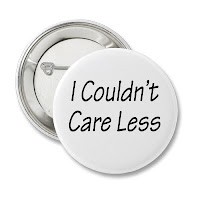Here’s an article angle / thread...
Hello and happy Easter FFF:
Here is a thought, offered late on a sunny Thursday afternoon. What if we reflect on how this process of writing about adult children and questions of gender and identity differs (yet coalesces, too) depending if the "child" is out or not. If my child is out, is it my right / duty / even obligation to use my rhetorical and writing skills to explore and make known this process and experience. Is this implied by being "out." Or are there still areas that are not open, where there needs to be an exercise of discretion, where it is x's story and not mine. Alternately, if my children are not out–if they are having troubles with identity and growth-to what degree do I owe them silence?
I cannot tell their stories as if they are mine?
This term studying autobio / memoir I had students write about their parents–a familial autobiography. I wanted them to see/feel viscerally the effects of "telling about / on" others. Of course ethics here are huge, but that is another discussion! Anyhow, they GOT it. We live with these intimate others, our family (intimate others being a rather optimistic reference!), yet one of our bonds is (often?) protective silence.
Don't you think it is fascinating to imagine a comparison contrast approach about what constitutes loving and respectful treatments?
Here is a thought, offered late on a sunny Thursday afternoon. What if we reflect on how this process of writing about adult children and questions of gender and identity differs (yet coalesces, too) depending if the "child" is out or not. If my child is out, is it my right / duty / even obligation to use my rhetorical and writing skills to explore and make known this process and experience. Is this implied by being "out." Or are there still areas that are not open, where there needs to be an exercise of discretion, where it is x's story and not mine. Alternately, if my children are not out–if they are having troubles with identity and growth-to what degree do I owe them silence?
I cannot tell their stories as if they are mine?
This term studying autobio / memoir I had students write about their parents–a familial autobiography. I wanted them to see/feel viscerally the effects of "telling about / on" others. Of course ethics here are huge, but that is another discussion! Anyhow, they GOT it. We live with these intimate others, our family (intimate others being a rather optimistic reference!), yet one of our bonds is (often?) protective silence.
Don't you think it is fascinating to imagine a comparison contrast approach about what constitutes loving and respectful treatments?



Comments
Post a Comment